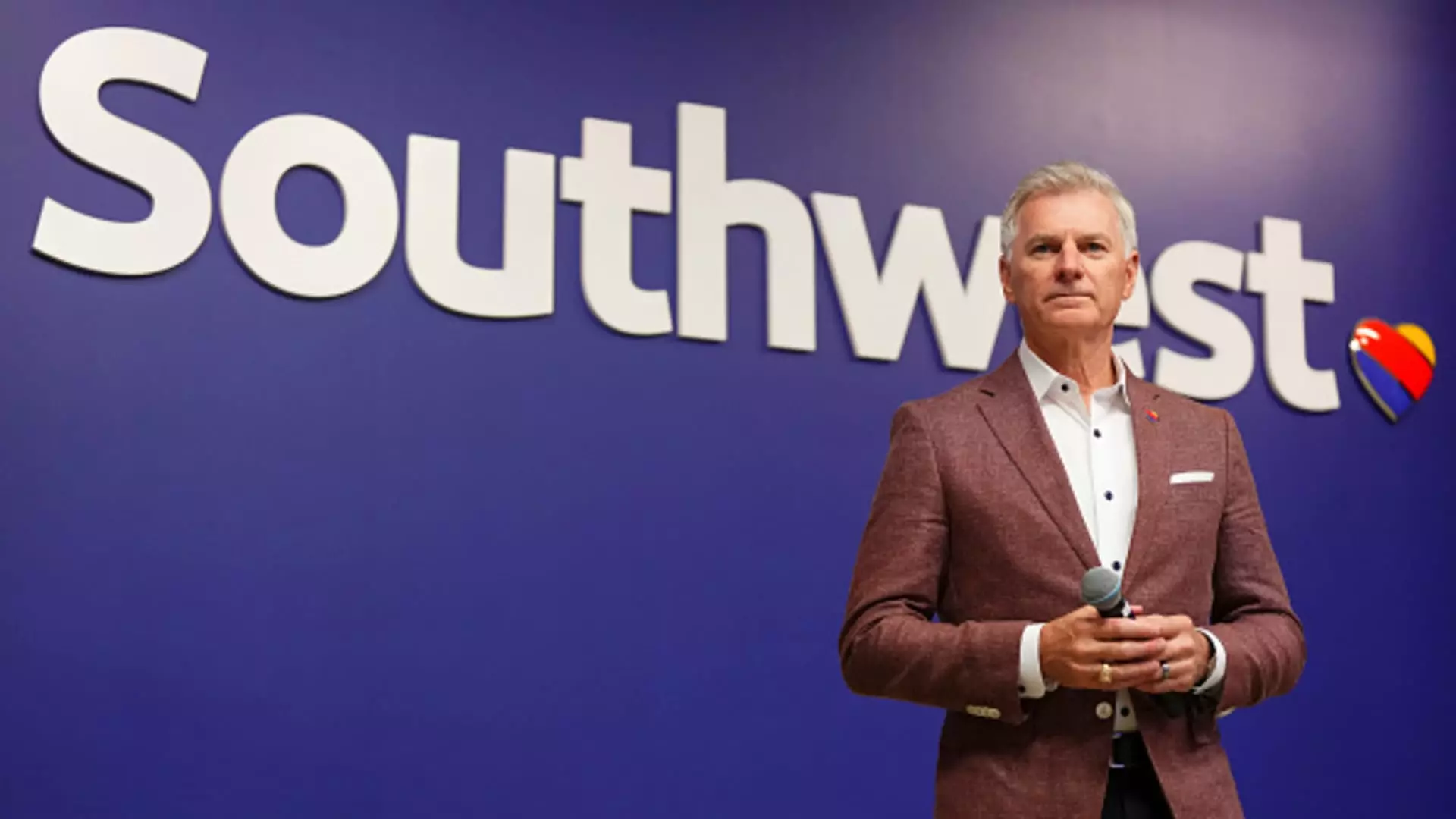In a significant shift in governance, Southwest Airlines has announced a strategic alliance with Elliott Investment Management, a prominent activist hedge fund. This partnership is rooted in the necessity to rejuvenate the airline’s board amid ongoing criticism of its leadership and operational stagnation. As Southwest seeks to navigate an increasingly competitive industry, these developments underscore both the challenges and opportunities that lie ahead for the airline and its stakeholders.
The crux of the agreement between Southwest and Elliott revolves around the inclusion of six new directors on the airline’s board, a move seen as essential for refreshing its strategic vision. The addition includes nominees proposed by Elliott alongside former Chevron CFO Pierre Breber. This change will elevate the board count to 13 members. Elliott’s representatives expressed satisfaction with the progress achieved through their negotiations, emphasizing that the new board members would be instrumental in nurturing Southwest’s future trajectory. This influence could bring diverse perspectives and innovative ideas to an organization that has historically adhered to a singular business model for half a century.
The impending departure of Executive Chairman Gary Kelly is another critical element of this restructuring. Originally slated to step down in the following year, Kelly will now transition out of his role next month. While he has been a stalwart figure in Southwest’s history, the airline’s leadership has faced mounting pressure to evolve and modernize amid rapid changes in consumer preferences and competitive dynamics. The decision to retain CEO Bob Jordan signals a vote of confidence in his ability to steer the airline through this transformative phase, even as scrutiny over his performance persists.
Historically, Southwest Airlines has been characterized by its unique approach to air travel, notably through practices such as open seating and a simplified fare structure. However, in a market increasingly dominated by competitors like Delta Air Lines, there is a pressing need for Southwest to explore revenue-enhancing strategies. With Airline stocks performing variably compared to broader market trends — Southwest’s shares ascending only 1% while the S&P 500 surged 21% — it’s clear that a reevaluation of existing practices is imperative.
Critics have objected to the airline’s slow pace in adapting its business model to better align with market expectations and opportunities for profitability. Reports indicate that Southwest is set to implement significant changes to its operational framework, including a potential shift away from its long-standing open seating policy in favor of a premium-focused strategy that targets higher-yielding market segments. Such a transformative approach could not only enhance revenue but potentially alter customer perceptions and loyalty.
Financial Performance and Investor Confidence
Adding to the dialogue of transformation, Southwest’s recent financial performance exceeded analysts’ expectations, marking an important milestone. The announcement of a $2.5 billion stock buyback program also reflects a commitment to shareholder value — a critical area of focus for activist investors like Elliott, who often press for such initiatives as a pathway to bolster stock performance. However, despite positive financial reports, Southwest’s shares experienced a decline of approximately 6% during midday trading following the announcement, illustrating the volatile nature of the airline industry and investor sentiment.
Furthermore, the airline’s aggressive approach to cutting unprofitable routes serves as an indication that its leadership is making concerted efforts to streamline operations and mitigate financial losses. Projections suggest that with the implementation of new revenue initiatives, Southwest aims to achieve significant growth in earnings before interest and taxes by 2027. This optimistic forecast reflects a broader strategy of aligning with market demands while reinforcing operational efficacy.
In light of these developments, it is clear that Southwest Airlines stands at a crucial crossroads. The forthcoming changes in board composition and leadership reflect an emerging desire to adapt and innovate in an ever-evolving industry landscape. While concerns regarding long-standing practices remain, there is cautious optimism surrounding the capabilities of the new board and the commitment to revitalizing the airline’s prospects.
As Southwest Airlines embarks on this journey of transformation, it remains to be seen how effectively it can balance the preservation of its unique identity with necessary adaptations that address modern market realities. The path forward will undoubtedly be scrutinized by stakeholders and industry analysts alike, as the airline aims to reclaim its position as a leader in the competitive aviation sector. The forthcoming months and years will be pivotal in determining the effectiveness of these strategic changes and the airline’s overall trajectory.

Leave a Reply